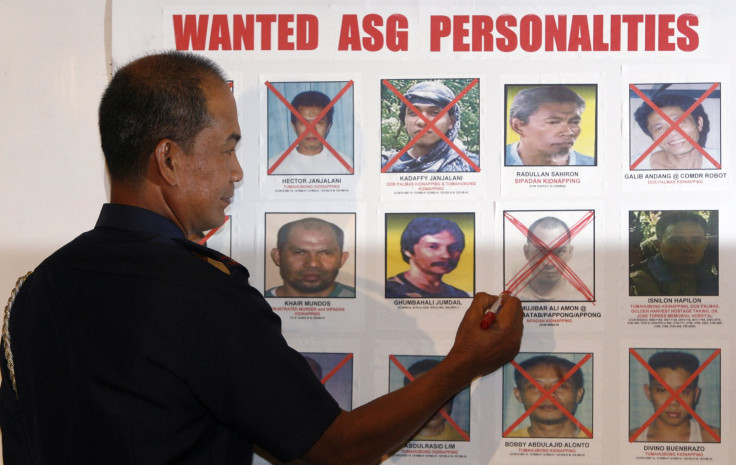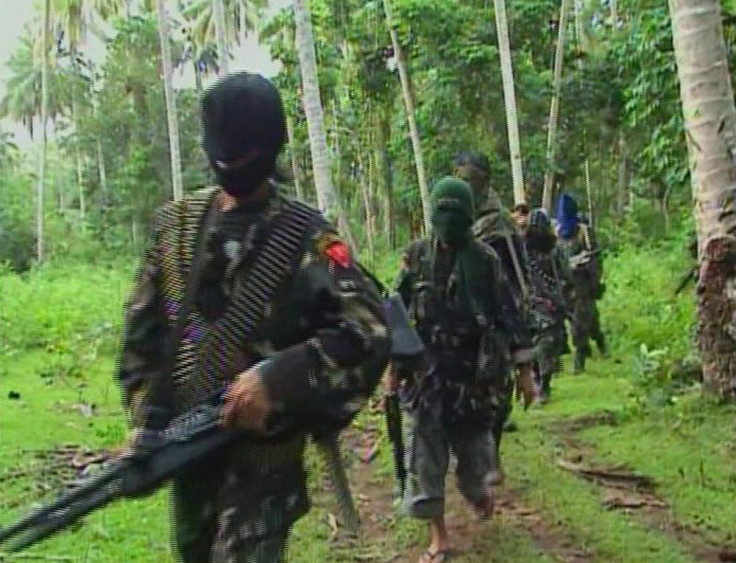What Is Abu Sayyaf? ISIS Supporters In Philippines Threaten To Behead Canadian Hostages John Ridsdel, Robert Hall

UPDATE: 1:24 p.m. EDT — Canadian businessman John Ridsdel was killed after being held hostage for more than seven months by a Muslim militant group in the Philippines, CBC News reported Monday. Abu Sayyaf had said it would behead four hostages if it did not receive a ransom of 300 million pesos (U.S. $6.4 million) for each victim. It's unclear if the three other hostages kidnapped from a resort last year are alive.
Ridsdel, 68, is the former chief operating officer of mining company TVI Resource Development Philippines Inc. He previously worked as a producer and reporter at CBC Calgary and at the Calgary Herald.
#BREAKING CONFIRMED Canadian John Risdel killed in Philippines after being held hostage by Islamist group #cdnpoli https://t.co/qdTh5VoNnt
— Natasha Fatah (@NatashaFatah) April 25, 2016
Original story:
A Muslim militant organization in the southern Philippines that has pledged allegiance to the Islamic State group threatened Monday to behead four hostages, including two Canadian businessmen. Abu Sayyaf, or Bearer of the Sword, said it would behead the hostages if it did not receive a ransom of 300 million pesos (U.S. $6.4 million) for each victim.
The hostages were abducted last year from a tourist resort on Samal Island in Davao del Norte province. They are reportedly being held at a makeshift Abu Sayyaf camp on a nearby island. They are Canadian mining consultant John Ridsdel, 68; fellow Canadian Robert Hall, 50, and his Filipino girlfriend, Marites Flor; and Kjartan Sekkingstad, a Norwegian who worked as the manager of the resort where they were abducted. The militant group initially asked for a ransom of a billion pesos for each victim last year.
Brig. Gen. Restituto Padilla said intelligence indicates the hostages were alive as of Saturday, the Associated Press reported. "Maximum efforts are being exerted ... to effect the rescue," the military and police said in a joint statement.
Abu Sayyaf was funded by Osama bin Laden and formed by his brother-in-law in 1992 in the predominantly Roman Catholic nation. The violent group has beheaded or fatally shot many hostages. The group is also known for carrying out kidnappings and bombings, the Bangkok Post reported.

In recent months, Abu Sayyaf abducted 10 Indonesian sailors from a cargo ship, kidnapped four Malaysian sailors from another ship and abducted four other Indonesians. More recently, it beheaded last week two Filipino hostages who worked as guards at a local sawmill. The group had declared the guards "spies."
An April 15 video from the militants showed the Canadian hostages with machetes held to their necks. "This is already an ultimatum," a masked militant says. "We will certainly behead one of these four." Two black flags can be seen in the background.
Abu Sayyaf announced allegiance to the Islamic State group April 19, becoming the largest Asian terrorist group to express loyalty to the so-called caliphate led by Abu Bakr al-Baghdadi. The militant group, based in Syria and Iraq, is also referred to as ISIS or ISIL.
© Copyright IBTimes 2024. All rights reserved.






















